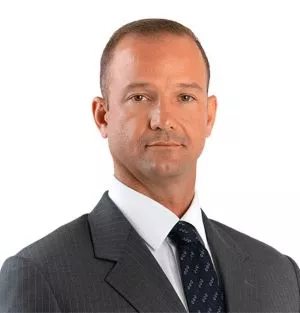- with readers working within the Banking & Credit and Healthcare industries
Alternative Investments in the Cayman Islands Crypto Funds and Digital Assets Thrive Under Innovative Legislation
The Cayman Islands has seen a significant rise in the establishment of alternative investment funds and digital assets. This article explores the various types of funds, their structures, regulations and benefits. It also looks at new innovative virtual asset legislation that is driving the growth of the digital assets marketplace and opening new doors of opportunity for investment.
Crypto Funds and Digital Assets in the Cayman Islands
The Cayman Islands has been the leading offshore jurisdiction for the establishment of mutual funds and private funds for more than 30 years. Its' phenomenal reputation has been due in part to the use of innovative legislation and the absence of taxation and exchange controls. This, together with the presence of sophisticated and professional service providers has resulted in the jurisdiction's reputation for responsible supervision and regulation of funds. Strengthening its position as a global leader, the Cayman Islands has introduced innovative legislation to regulate virtual asset service providers, opening the doors to the digital asset marketplace.
It is no surprise therefore that when fund managers and virtual asset service providers are looking for the best jurisdiction to establish alternative funds investing in cryptocurrencies, Web3 and blockchain products and to set up digital asset entities, the Cayman Islands is the jurisdiction of choice.
Fund Types and Regulation Requirements in the Cayman Islands
The Cayman Islands are home to both regulated mutual funds (open-ended) and regulated private funds (closed-ended) both of which may be utilised in cryptocurrency and blockchain structures as detailed below.
Mutual Funds
Mutual Funds are regulated under the Mutual Funds Act (the "MFA"). The MFA defines a mutual fund as a company, unit trust or partnership that issues equity interests, the purpose or effect of which is the pooling of investor funds with the aim of spreading investor risk and enabling investors to receive profits or gains from the acquisition, holding, management or disposal of investments. Equity interests are defined as a share, trust unit or partnership interest or any other representation of an interest that carries an entitlement to participate in the profits or gains of the company, unit trust or partnership, as the case may be, and which may be redeemed or repurchased at the option of the investor.
The MFA applies to all open-ended funds (funds in which the investors have the right to redeem their interests at their option), except those specifically excluded from regulation. Therefore, any tokens which are issued by a fund which carry an entitlement to participate in the profits or gains of the company will require registration under the MFA if they are redeemable at the option of the holder.
Types of Regulated Mutual Funds
Currently there are six (6) types of mutual funds that are subject to regulation and supervision under the MFA by the Cayman Islands Monetary Authority ("CIMA") but the one most popular for open-ended Crypto Funds is the Registered Mutual Fund which has a streamlined registration procedure available where:
- the initial minimum equity interest purchasable by an investor is US$100,000; or
- whose equity interests are listed on an approved stock exchange such as the
Director Registration
Directors of Registered Mutual Funds and master funds (if applicable) are required to register with CIMA and maintain such registration on an annual basis pursuant to the Directors Registration and Licensing Act (as Revised). Directors must also actively deregister from CIMA where such registration is no longer required (or will be subject to ongoing annual fees until such time as they deregister).
Private Funds
Private Funds are regulated under the Private Funds Act (as Revised) (the "PFA"). The PFA defines a private fund as a company, unit trust or partnership that offers or issues or has issued investment interests, the purpose or effect of which is the pooling of investor funds with the aim of enabling investors to receive profits or gains from such entity's acquisition, holding, management or disposal of investments, where:
- the holders of investment interests do not have day-to-day control over the acquisition, holding, management or disposal of the investments; and
- the investments are managed as a whole by or on behalf of the operator of the private fund, directly or indirectly.
The PFA applies to all closed-ended funds (funds in which the investors do not have the right to redeem their interests at their option), except those specifically excluded from regulation.
Types of Registered Private Funds
There are two (2) types of private funds that are subject to registration with CIMA: (i) the Registered Private Fund and (ii) the Registered Restricted Scope Private Fund. The most popular structure for closedended Crypto Funds is the Registered Private Fund.
Material Changes to Information filed with CIMA
Where a fund (mutual or private) (a) makes any changes, or becomes aware of any changes, that materially affects any information submitted to CIMA under the provisions of the MFA or the PFA; or (b) changes its registered office or the location of its principal office, the fund must within 21 days after making the change or becoming aware of the change, as the case may be, file with CIMA the details of the changes.
Funds Exempt from CIMA Registration
It is worth noting what is not a mutual fund or a private fund. A fund with a single investor has no comingling of assets and is not registerable under the MFA or the PFA. Equity interests do not include debt so a fund which issues debt is not subject to the registration process under the MFA or the PFA. Lastly, the definition of a private fund does not include any 'non-fund arrangement'. These include pension funds, joint ventures, securitisations, SPVs, holding vehicles and others, which Stuarts can advise on, on a case-by-case basis. Care must be taken to ensure that a fund structure is not caught under a different regulatory regime in the Cayman Islands such as the virtual asset regime which would require separate regulation by CIMA.
Preferred Crypto Fund Structure and Benefits
There are many vehicles available in the Cayman Islands through which to operate a mutual fund or private fund. The fund can be structured as an exempted company with limited liability, a segregated portfolio company ("SPC"), a limited liability company, partnership or a unit trust. Each of these structures are quick to set up and easy to maintain.
Segregated Portfolio Company (SPC)
The vehicle which has found the most traction for Crypto Funds is the SPC. An SPC is a single legal entity with different "cells" or "pools" called "segregated portfolios" whose assets and liability are separated and protected (under Cayman Islands statue) from the liability of all other segregated portfolios in the same SPC.
The principal advantage of an SPC over a standard exempted company is that it protects the assets of one segregated portfolio from the liabilities of another segregated portfolio. This has been particularly attractive for Crypto Funds where many classes of assets are traded, and some have significantly more risk than others. The fund managers naturally wish to isolate the risk of the different strategies and the SPC structure provides the mechanism for this.
The Companies Act (as Revised) of the Cayman Islands (the "Companies Act") states that a creditor will only have recourse to assets from segregated portfolios with which it has contracted, and creditors will have no recourse to the assets of other segregated portfolios of the SPC which are protected under the Companies Act. The articles of association of the SPC will have provisions which reflect the Companies Act in this respect.
SPCs facilitate a streamlined offering structure for certain mutual funds enabling the SPC to be used by multiple managers who can be quickly onboarded into their own segregated portfolio with its own investment objective and assets all contained in an SPC structure that has its service providers already selected and in place.
Originally published by Legal500, 6 September 2024
The content of this article is intended to provide a general guide to the subject matter. Specialist advice should be sought about your specific circumstances.



